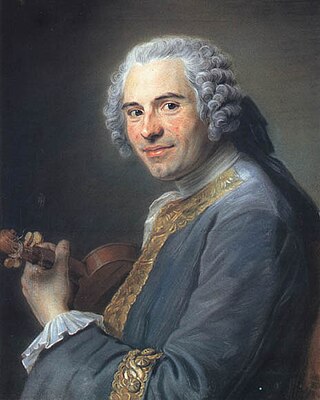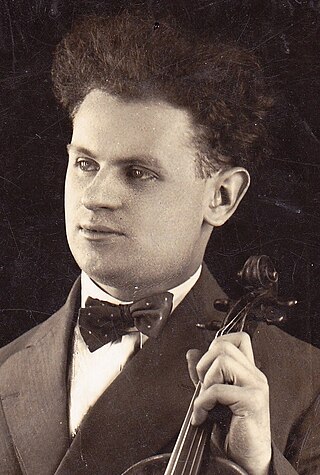Bruno Rossignol | |
|---|---|
 | |
| Born | 1958 Nanterre, France |
| Education | |
| Occupations |
|
| Awards |
|
Bruno Rossignol (born 1958 in Nanterre) is a French composer, choral conductor and conductor, pianist and music educator.
Bruno Rossignol | |
|---|---|
 | |
| Born | 1958 Nanterre, France |
| Education | |
| Occupations |
|
| Awards |
|
Bruno Rossignol (born 1958 in Nanterre) is a French composer, choral conductor and conductor, pianist and music educator.
He studied music at the École normale de musique de Paris and the Sorbonne. He then directed choirs: first trainee conductor at the Paris Opera and at the choir of the Orchestre de Paris (by Jean Laforge and Arthur Oldham), he was then founding conductor of the Île-de-France Chamber Choir. (first prize of the International competitions of Malta in 1989 and Verona in 1993). With this ensemble, he received the Grand Prix des Hauts-de-Seine in 1996. [1]
From 1985 to 1995, he was the choir conductor of the musical shows of Jean-Michel Jarre, whom he accompanied in London, Paris-La Défense (1990), Berlin, Budapest, Seville, Barcelona, Santiago de Compostela, Mont-Saint-Michel. [2]
He was director of the Conservatories of Jouy-en-Josas from 1989 to 1992, Suresnes from 1992 to 1997, Orsay from 1997 to 2000, Bourges from 2000 to 2005 and Hector Berlioz in Paris 10th from 2005 to 2010. [1] He conducted the adult choir of the Paul Dukas conservatory in Paris 12th from 2006 to 2010. [3]
In 2011, he was appointed director of the Conservatoire à rayonnement départemental (CRD) de la Dordogne and artistic director of the Dordogne instrumental ensemble. (E.I.D.) [4] with which he performs mainly in the regions Aquitaine. [5] At the same time he creates the Dordogne choir [2] which becomes the Paratge choir in 2016. He joined Paris that same year to take over the direction of the Jean-Philippe Rameau conservatory (6th arrondissement of Paris). [6]
Bruno Rossignol composes choral works such as Ave verum, Exurgens autem Maria and Salve Regina pour un tombeau de Francis Poulenc. He mainly writes a large number of instrumental pieces (Le Roi des grenouilles, Les Nouvelles Histoires Naturelles and Curieuses rencontres) through which he expresses his vocation as a teacher. [1]
Cantata :
Music for choir:
He has also transcribed for piano four hands great works from the repertoire:
As choral conductor he won:

Michael Corrette was a French composer, organist and author of musical method books.

Jean Francisque-Étienne Martinon was a French conductor and composer.

Jean-Joseph de Mondonville, also known as Jean-Joseph Cassanéa de Mondonville, was a French violinist and composer. He was a younger contemporary of Jean-Philippe Rameau and enjoyed great success in his day. Pierre-Louis Daquin claimed, "If I couldn't be Rameau, there's no one I would rather be than Mondonville".

Manuel Rosenthal was a French composer and conductor who held leading positions with musical organizations in France and America. He was friends with many contemporary composers, and despite a considerable list of compositions is mostly remembered for having orchestrated the popular ballet score Gaîté Parisienne from piano scores of Offenbach operettas, and for his recordings as a conductor.
Jacques Castérède was a French composer and pianist.

Georges Elbert Migot was a prolific French composer. Though primarily known as a composer, he was also a poet, often integrating his poetry into his compositions, and an accomplished painter. He won the 1921 Prix Blumenthal.
Maurice Jaubert was a prolific French composer who scored some of the most important films of the early sound era in France, including Jean Vigo’s Zero for Conduct and L'Atalante, and René Clair’s Quatorze Juillet and Le Dernier Milliardaire. Serving in both world wars, he died in action during World War II at the age of 40.
Stéphane Delplace is a French composer.

Renaud Capuçon is a French classical violinist. Since late 2016 he has been teaching at the Royal Northern College of Music.

Claude Pascal was a French composer.

Charles Casimir Manry was a French composer and choral conductor.
Pierre Wissmer was a 20th-century French classical composer of Swiss origin.

Antoine Aimable Elie Elwart was a French composer and musicologist.
Louis-Noël Belaubre was a French classical pianist and composer.

Marie-Désiré Martin-Beaulieu was a French composer and concert organizer.

Alain Henri Bernaud was a French composer.
René-Alfred-Octave Guillou was a French composer and pianist.
Adrien Rougier was a French organist, organ builder, conductor and composer.

Geneviève Laurenceau is a French classical violinist. She was a supersoloist with the Orchestre national du Capitole de Toulouse from 2007 to 2017.
Jean-Maurice Bourges, distinguished musical critic, translator and composer who came early to Paris to study composition under Auguste Barbereau. He became joint-editor for Revue et gazette musicale de Paris from 1839, which acquired an excellent reputation in great measure owing to him.